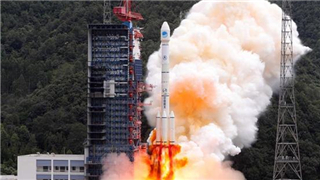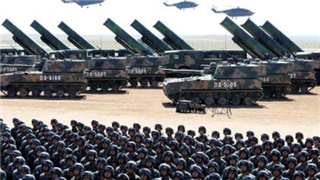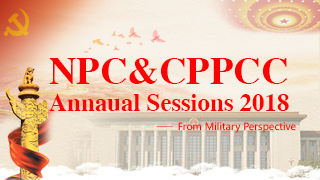WELLINGTON, March 6 (Xinhua) -- China's peaceful development has become an anchor of stability and an engine of world growth, said a New Zealand expert on Tuesday.
Wayne Huang, principal of the East Auckland-based Institute of Commercial Education New Zealand, made the remarks when commenting on the government work report delivered by Chinese Premier Li Keqiang at the opening of the second session of the 13th National People's Congress (NPC), China's top legislature.
"In the 40 years of reform and opening-up, I have witnessed that China has rapidly grown into the world's second largest economy, and its ability to absorb foreign goods and foreign investment is increasing," said Huang.
China has set its 2019 economic growth target at 6-6.5 percent, according to the government work report. Last year, China's economy grew 6.6 percent, outperforming the official target of "around 6.5 percent."
In December 2018, China held a grand gathering to celebrate the 40th anniversary of the country's reform and opening-up. Over four decades, the country's share of global gross domestic product rose from 1.8 percent to 15.2 percent, contributing more than 30 percent of global growth for years.
"The practice in the past 40 years proves that China's peaceful development is not a threat to the world, but an anchor of stability and a driving force for growth," the principal said. "It has increasingly become an important force for safeguarding world peace and promoting common development."
Since the outbreak of the international financial crisis in 2008, economic and trade ties with China have played a crucial role in the continued prosperity of New Zealand, said Huang.
Bilateral trade between China and New Zealand in 2017 totaled 14.48 billion U.S. dollars, up 21.6 percent year-on-year, according to China Customs.
China's rapidly developing economy and its large consumer base provide a huge market for New Zealand and the rest of the world, Huang added.
Since 2013, China has been New Zealand's largest trading partner, and China's peaceful development has become an important opportunity for New Zealand, he said.
"In recent years, Sino-New Zealand cooperation has expanded from traditional commodity trade to service trade," he added.
Also, in the process of China's peaceful development, "attention has been paid to strengthening cultural exchanges and non-governmental exchanges with countries around the world," the principal said, noting that the Chinese culture has become increasingly popular overseas.
New Zealand-China cooperation "in tourism, cultural exchanges and education ... has flourished," he said, adding that China has been the largest source of international students in New Zealand for many years.
Huang recalled that during the Chinese Spring Festival this year, he introduced a Chinese dragon and lion dance team to an Auckland school, and "it was greatly welcomed by teachers and students."
"It can be expected that with the promotion of the Belt and Road Initiative, the cooperation between China and New Zealand in the fields of tourism, cultural exchanges and education will have bright prospects," said Huang.











